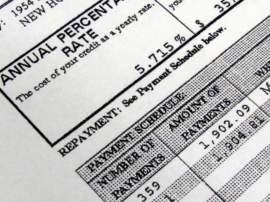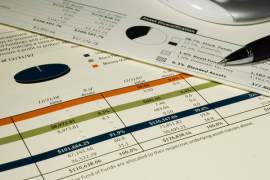
Standard Deviation Formula

What is the Standard Deviation Formula?
• At first glance, the standard deviation formula may seem daunting; however, the standard deviation formula is considered fairly basic, especially when compared to other statistical equations.
• In the majority of statistical studies, a conclusion is formulated to evaluate (and subsequently decipher) whether a specific set of data is different from the control set. To formulate such a conclusion, the variability of the data must be known. The formula used to measure this variability is standard deviation. As a result, the standard deviation is approximately equal to the average deviation from the mean.
• The standard deviation formula is depicted below:
• In this formula, X is the value of mean, N is the sample size and X(i) represents each data value from i=N to i=1. The large “E” symbol represents the summation function in mathematics; this symbol indicates that must add up the sum. To utilize the standard deviation formula it is suggested that the individual have a basic understanding of algebra.
What is Standard Deviation?
• Standard deviation is a commonly-used measurement of diversity or variability in statistics, finance and probability theory. More specifically, standard deviation will show how much variation is present from the mean or expected value—in finance, it can be applied to transactions or maneuvers. A low standard deviation will indicate that the given data points are very close to the mean, while a high standard deviation indicates that the data are spread over a large range of values.
• In addition to expressing variables of a given population, standard deviation is also used to measure confidence in statistical conclusions. For instance, the margin of error in polling data is typically determined by calculating the standard deviation if the same poll were to be conducted several times.
Why is Standard Deviation used in Finance?
• Standard deviation is critical in finance, because the technique can elucidate on the rate of return for an investment or transaction. In essence, the standard deviation will yield the underlying investment or transaction’s volatility.
• In finance, standard deviation is used to represent the risk associated with a given investment security (such as a stock or bond etc.) or the risk of actively managed bundles of securities (such as hedge funds, mutual funds, or ETFs).
• Risk a primary factor when determining how to manage or invest in securities; risk determines the variation in returns on the investment, which in turn offers a mathematical basis for the investment decision.
• The basic concept of risk is that, as it increases, the expected rate of return for the underlying asset will increase to entice potential investors. Investors, in other words, should expect a higher return on a riskier investment to obfuscate the uncertainty latent in the purchase. In essence, standard deviation will provide a quantified estimation regarding the uncertainty of future returns.



















